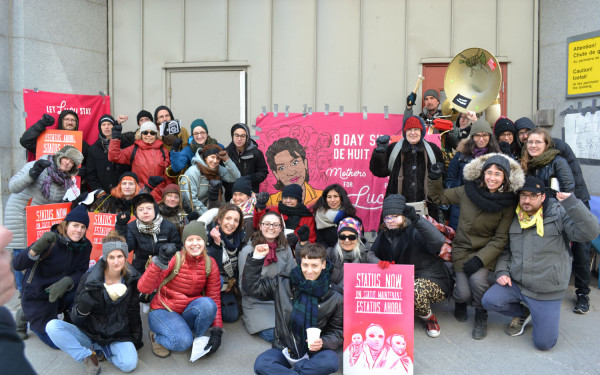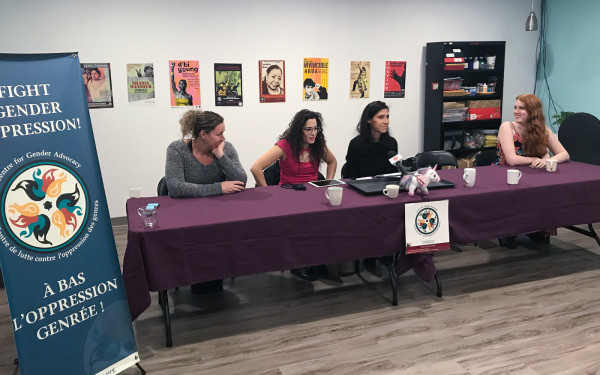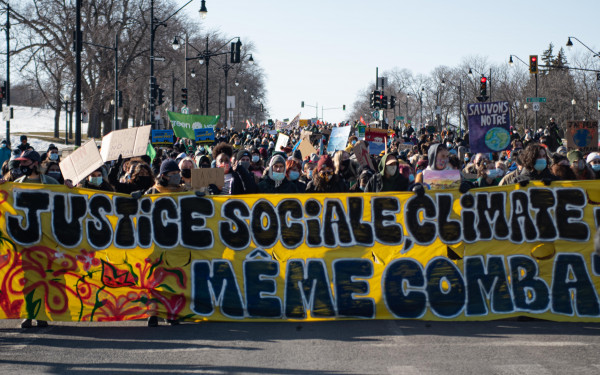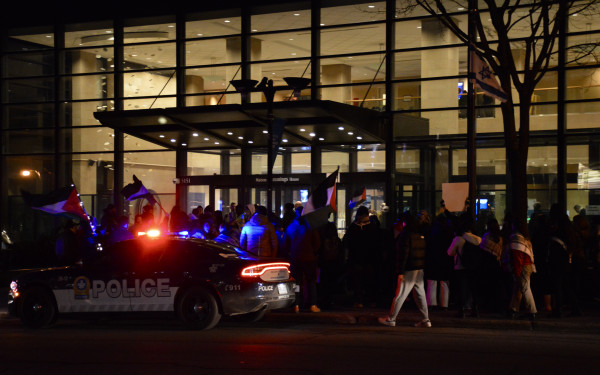Montreal’s Sikh community agrees: Farmers’ rights are human rights
Minorities continue a decades-long fight for the protection of self-expression
Indian farmers are facing a crisis.
Prime Minister Narendra Modi passed three bills in September with the intent to give farmers more freedom in the agrarian sector.
The truth is these new laws threaten the businesses of farmers across the country, especially those in marginalized communities, who have been constantly subjected to systemic oppression throughout history.
For many Indians, it comes as no surprise that Sikh farmers from the state of Punjab are the most targeted community. Historically, tensions between the Hindu majority and other religious affiliations have squabble over control and maintenance of religion, land, language and general lifestyle. The 1984 anti-Sikh riots are but one example of the social divide that has contributed to the growing agitation between both communities.
Nonetheless, on the matter of human rights being violated, the Indian government must step up to the plate and exemplify its motto of fairness and equality among citizens, just as it aimed to do back in 1947 when the country gained independence.
The three bills in question are the Farmers Produce Trade and Commerce bill, the Farmers Agreement of Price Assurance and Farm Services Bill, and the Essential Commodities Bill. Together, these bills intend to give farmers more freedom to trade their goods to a wider market.
There are, however, major unspoken drawbacks. These laws, which at first appear accommodating to farmers’ success, would instead leave the agrarian sector in the hands of billionaire corporations that are longtime partners of Modi’s political affiliate, the Bharatiya Janata Party..
Farmers across India protesting to protect their rights have been met with inhumane violence. Since then, numerous human rights codes have been violated by the Indian Police Service.
The violence gained momentum on Jan. 26, when protesters rallied with tractors from rural communities around India to Delhi. A clash with police left one person dead, and many protesters and officers injured. The police responded with internet shutdowns, and even cut phone services as well as water pipelines in several districts.
Farmers, especially those in the Sikh community, have been incessantly fighting to have their voices heard—often to no avail.
Since these events have transpired, the Sikh community from all over the world has been vocal within their own limits, whether it be by organising local protests, posting on social media to bring awareness, or talking to representatives within their jurisdictions to incite support for Indian farmers. Montreal’s Sikh youth have been doing their best to do the very same.
One thing is certain: the Sikh community in Montreal has been deeply impacted by the injustices that farmers are facing back home.
The Link spoke to Sikh youth in Montreal about their views on the ongoing violence and injustice towards protesters in India. Many youth were willing to share their views on the ongoing violence and injustice towards protesters in India. Here is a transcript of a few responses:
How are you feeling right now in regards to what’s been going on in India?
Savdeep Sohi: “Right now, it’s like a buildup of mixed emotions. There are times where I get goosebumps thinking about how strong everyone is at the protest sites. But at the same time, I just feel so heartbroken, thinking of people who are old enough to be my grandparents, who are facing so much injustice.”
Mandeep Kaur: “I would say that this is not something new [...] as a Sikh. It’s still very disturbing. There are a lot of emotions that I’m feeling because this kind of [dicrimination] has happened before, and is happening again. I feel like people are now realizing that it’s not really a democracy, but rather [...] an oppressive government to minorities under the Indian state.”
“[With the government controlling the media], they are able to change the narrative. I feel like the moment you don’t have the media, it’s easy to misguide reality, and that’s what’s been happening.” For Kaur, the police are being depicted as the victim and the protesters as the aggressors.
Have you been in contact with family back home who might be involved in the protests? How have they been coping with the events?
I think of the generations or farming families that currently feel helpless and cornered by the law, just as my family once did decades ago.
Savdeep Sohi: “[My uncle] is a farmer, but he has not been speaking much to us because they’ve been having problems with the internet shutdowns and [phone lines] not working, and that is because of the government.”
“After all the hard work [he has poured into farming], he does not get paid enough.” Sohi compares the situation to that of an employer who controls their employees’ wage. “They’re already in dept, so what are they going to do?”
Mandeep Kaur: “[My family in India] went to a few protests, but they are not in Delhi, so it is not the same thing. When the protests were in Punjab, they did participate [...] Obviously, they are against the laws and are frustrated.”
What are your thoughts about journalists whose voices are being shunned? Do you agree that this is a violation of freedom of expression for the Indian free press?
Savdeep Sohi: “The government doesn’t want people to see the reality of what’s happening over there because these journalists are fighting for what’s right, and are trying to share what’s been going on with the world.”
“The journalists there help us to better understand what’s really going on, and they are being detained, taken away, assaulted, and abducted. I’ve already named four human rights that have been violated.”
Mandeep Kaur: “Unfortunately, I’m not surprised at all. It’s in history. As a Punjabi and as a Sikh, it’s not new. It’s always been the same tactics: Silencing anyone who tries to raise their voice and labeling them as terrorists [...] and then you have the kidnappings, especially when it comes to women, like Nodeep Kaur. It’s quite normal for the state to suppress women who are trying to speak up. Now especially, I feel like citizens are trapped because they don’t have support from the media either.”
The truth is that religious differences of opinions have always created divides for minorities in the country, dating back to post-colonial times. The Indian government has a lot of work to do if it wants to truly showcase its supposedly accepting culture. So much for being “the biggest democracy in the world.”
This crisis has some personal significance for me. My paternal grandparents were refugees from Amritsar, a city populated by a large Sikh community. Religious differences were the key factor that forced them to flee to Pakistan right as both nations were separating in 1947. They left the Hindu religion and had converted to Christianity, which was not accepted by the overall religious community whatsoever.
Although the situation of my family differs from that of farmers today, I can’t help but think of the ongoing violence in the very state that they once lived in. I think of the generations or farming families that currently feel helpless and cornered by the law, just as my family once did decades ago.
If the Indian government hopes to reunite its citizens in the name of solidarity, it is high time that they begin listening to the peoples’ demands. Addressing the inequalities in between different communities at the parliamentary level could give voice to the voiceless. Only then can it truly take credit for being the world’s largest democratic body.







